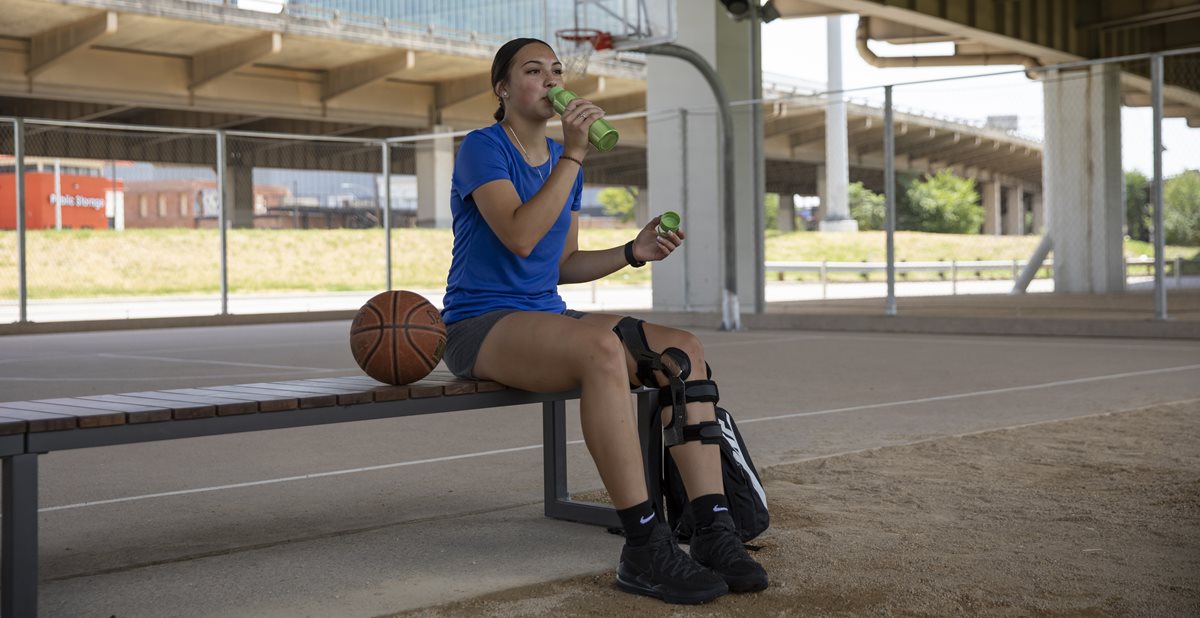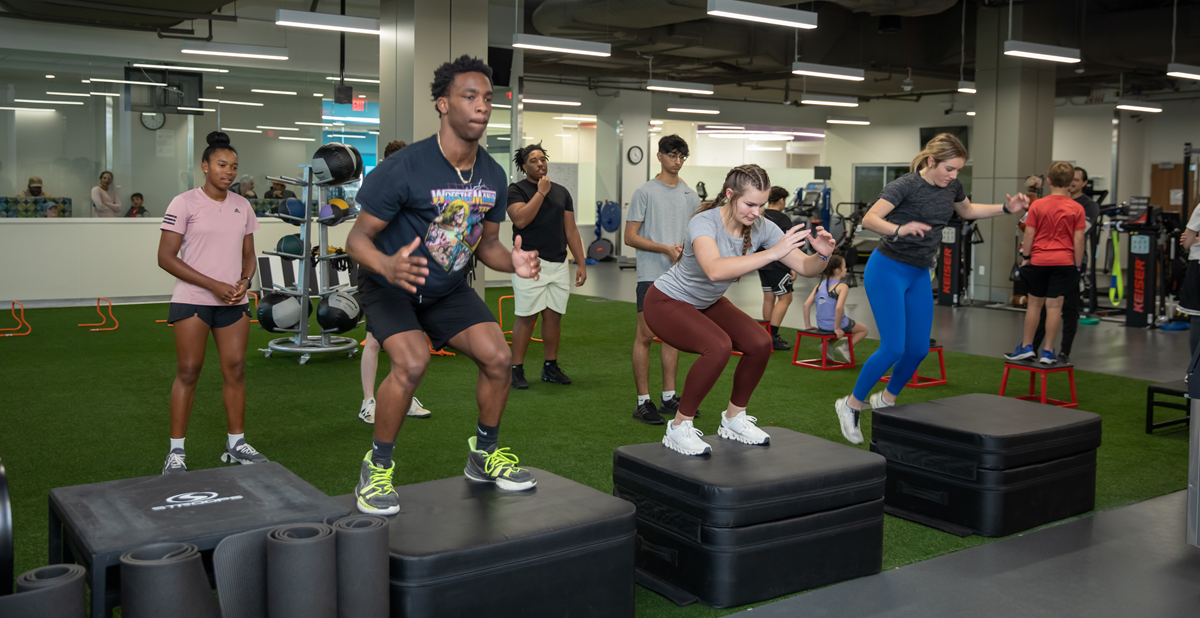
May 23, 2018 / Sports Medicine
Tips and Guidelines for the Vegetarian Athlete
It may take a little more planning and a little more food, but Taylor Fisher M.S., R.D., L.D., says “getting your nutrition and calorie needs for sports with a vegetarian diet IS possible.” See the list below for nutrients that could be lacking in some vegetarian diets and incorporate a variety of these suggested foods throughout each day to get the nutrition that a growing athlete needs.
Download our Vegetarian Nutrition PDF. (English / Spanish)
Critical Nutrients & How to Include Them
“Vegetarian” is a term often used to describe individuals who choose to eliminate meat and eat a plant-based diet only. There are different variations of vegetarians, some that include eggs, fish and milk products and others that only include some of these or none at all, sticking to a plant-based diet entirely. While there are important nutrients a young athlete needs in meat, eggs, fish and milk, it is possible to get these nutrients from plants as well*.
The list below includes nutrients that may be lacking in a vegetarian diet. Use this as a guideline to help your young vegetarian athlete eat the right foods each day to feel fueled, energized and prevent injury.
*If your young athlete does not eat any animal products (including dairy and eggs) he or she should speak with a pediatrician about vitamin B12 supplementation.
Below are our recommendations for nutrition sources for the vegetarian athlete:
PROTEIN
CALCIUM - important for bone health & normal muscle contractions
Note: Compounds called oxalates can inhibit calcium absorption. Higher oxalate calcium-rich foods include beans, nuts, soy beans, and some darker green veggies like spinach. You don’t have to completely cut these higher oxalate foods out of your sports diet, but try to incorporate other high calcium, lower oxalate foods (such as bok choy and kale) often.
VITAMIN D – important for bone health & a healthy immune system
DHA – important for brain development & cognitive function
IRON – important for carrying oxygen in the blood
Note: Due to phytates (compounds that inhibit the absorption of iron in the body) in some of these plant sources, try to combine them with foods high in vitamin C for optimal iron absorption. Foods high in vitamin C include: citrus fruits, strawberries, tomatoes, and bell peppers.
ZINC – important for healing after major injuries as well as minor ones that can occur in exercise
VITAMIN B12 – important for the creation of red blood cells
For information about sports nutrition and pediatric sports medicine, please visit our website at scottishriteforchildren.org/sports.
Download our Vegetarian Nutrition PDF. (English / Spanish)
Critical Nutrients & How to Include Them
“Vegetarian” is a term often used to describe individuals who choose to eliminate meat and eat a plant-based diet only. There are different variations of vegetarians, some that include eggs, fish and milk products and others that only include some of these or none at all, sticking to a plant-based diet entirely. While there are important nutrients a young athlete needs in meat, eggs, fish and milk, it is possible to get these nutrients from plants as well*.
The list below includes nutrients that may be lacking in a vegetarian diet. Use this as a guideline to help your young vegetarian athlete eat the right foods each day to feel fueled, energized and prevent injury.
*If your young athlete does not eat any animal products (including dairy and eggs) he or she should speak with a pediatrician about vitamin B12 supplementation.
Below are our recommendations for nutrition sources for the vegetarian athlete:
PROTEIN
- Nuts
- Seeds
- Yogurt (increased protein in Greek yogurts)
- Milk
- Cheese
- Dairy alternatives (soy milk, cheese & yogurt)
- Fish
- Whole grains (quinoa, oats, amaranth, bulgur, buckwheat, contain higher amounts of protein)
- Eggs
- Beans
- Lentils
- Tofu
- Some granola bars
- Some vegetables (such as peas, spinach, baked potatoes, broccoli, Brussels sprouts)
CALCIUM - important for bone health & normal muscle contractions
- Vegetables such as: bok choy, kale, arugula, watercress, collard greens, spinach
- Nuts (almonds) & seeds (sesame & chia)
- Calcium-set tofu
- Kidney beans
- Calcium-fortified orange juice, cereals, and milk alternatives (like soy or almond milk)
- Milk, cheese & yogurt
Note: Compounds called oxalates can inhibit calcium absorption. Higher oxalate calcium-rich foods include beans, nuts, soy beans, and some darker green veggies like spinach. You don’t have to completely cut these higher oxalate foods out of your sports diet, but try to incorporate other high calcium, lower oxalate foods (such as bok choy and kale) often.
VITAMIN D – important for bone health & a healthy immune system
- Mushrooms (may have varying amounts)
- Fortified soymilk, yogurts, cheese, cereals and granola bars
DHA – important for brain development & cognitive function
- Salmon, sardines, mackerel, tuna
- Algae-based DHA supplements
IRON – important for carrying oxygen in the blood
- Vegetables – spinach, asparagus, chard, broccoli rabe, bok choy
- Tofu, lentils, soybeans, other beans
- Pumpkin seeds & sesame seeds
- Raisins
- Iron-fortified breakfast cereals
Note: Due to phytates (compounds that inhibit the absorption of iron in the body) in some of these plant sources, try to combine them with foods high in vitamin C for optimal iron absorption. Foods high in vitamin C include: citrus fruits, strawberries, tomatoes, and bell peppers.
ZINC – important for healing after major injuries as well as minor ones that can occur in exercise
- Beans & whole grains (remember these contain phytates, which also inhibit the absorption of zinc as well as iron)
- Soy products
- Nuts & Seeds (such as pumpkin and hemp seeds)
VITAMIN B12 – important for the creation of red blood cells
- Meat
- Yogurt, milk, cheese
- Eggs
For information about sports nutrition and pediatric sports medicine, please visit our website at scottishriteforchildren.org/sports.



